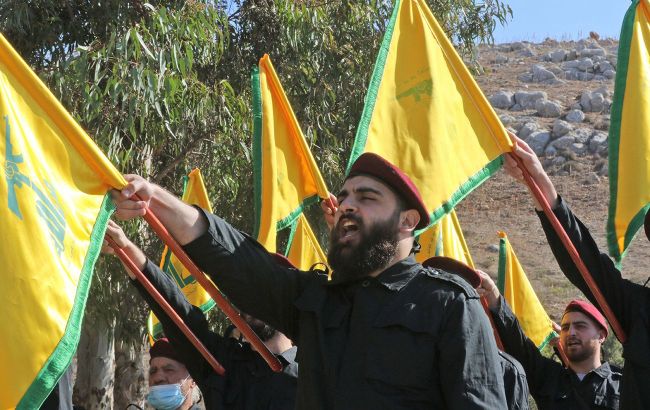Western countries prepare to evacuate population of Lebanon in case of war with Israel - Reuters
 Cyprus and Türkiye will handle the evacuation of Lebanese in the event of war between Hezbollah and Israel (photo: Getty Images)
Cyprus and Türkiye will handle the evacuation of Lebanese in the event of war between Hezbollah and Israel (photo: Getty Images)
Several Western countries are considering the possibility of evacuating citizens from Lebanon in the event of a full-scale war between the country and Israel. Türkiye and Cyprus have agreed to provide shelter for tens of thousands of people, reports Reuters.
Cyprus is noted as the closest EU member state, located approximately 264 km from Lebanon. It has been at the forefront of efforts to provide maritime assistance to the Gaza Strip and has previously coordinated evacuations from Lebanon.
In 2006, Cyprus hosted around 60,000 refugees during the Israel-Hezbollah war. The potential for an Israeli ground invasion of southern Lebanon, coupled with Hezbollah's expected retaliation through ballistic missile and drone attacks, raises the likelihood of mass evacuations from both Lebanon and Israel.
"We have requests from a number of countries, not only from the European Union but also from other third countries. We are ready to play this role in case of a need. We did it back in 2006 and we are ready to do it again. It is difficult but also it is our moral responsibility," said Cypriot President Nikos Christodoulides in an interview with Reuters on the sidelines of the 79th session of the UN General Assembly.
Thousands of citizens from various countries, including the US, France, the UK, and Germany, currently live in or are traveling through Lebanon. All have been working over the past months with Cyprus to prepare evacuation plans in case of a full-scale war.
Diplomats have indicated that other countries lacking the necessary military infrastructure in the region will also require assistance to evacuate their citizens.
Türkiye's role
Western states are also coordinating evacuation plans for Lebanese citizens with Türkiye. If Lebanon’s airports become unusable, the evacuation is most likely to take place by sea from the port of Tripoli in northern Lebanon to Mersin in southern Türkiye.
According to diplomats, no evacuation order has been issued yet. However, this could change if Israel begins amassing troops along the Lebanese border.
Assistance from France and EU allies
France has approximately 20,000 citizens in Lebanon and 1,000 soldiers as part of the UN peacekeeping mission. The French Ministry of Defense declined to comment on specific plans but confirmed that robust evacuation strategies are in place for October 2023.
European diplomats said France is coordinating closely with the U.S., which has around 50,000 citizens in Lebanon, as well as with the UK and Germany, to align efforts with Cyprus.
Washington has urged US citizens to leave Lebanon, but the State Department has not yet ordered an official evacuation of US personnel nor requested military assistance for the evacuation, according to American officials.
Recently deployed US forces in the region could assist in an evacuation if needed.
France also has a military ship in the region that can evacuate around 150 people, along with a helicopter carrier on standby capable of transporting ten times more. However, two French diplomats noted it would take several days for these ships to reach the region from southern France.
The French Ministry of Defense reported that French, Cypriot, Greek, and Italian naval forces conducted joint exercises from September 14 to 18, simulating the evacuation of citizens from Lebanon.
One challenge, according to diplomats, will be ensuring a swift airlift from Cyprus, given the large influx of people arriving on the island within a short period.
"The real challenge in all this is that it is going to take a number of days, weeks even, to shift most foreign nationals out of Lebanon, excluding the possibility of Israel too, which means people in Lebanon may end up being told hang tight while Israeli F-35s and Hezbollah missiles zoom above skies," said a European diplomat.
Two British military bases in Cyprus will be used for the evacuation. The UK, which has around 10,000 citizens in Lebanon, announced this week that it is moving troops to the island and has naval ships ready to assist with the evacuation.
Threat of a large-scale war in the Middle East
In recent weeks, tensions have escalated between Israel and the Lebanese group Hezbollah, with both sides exchanging rocket fire almost daily.
Given the situation, US President Joe Biden and French President Emmanuel Macron held a meeting on the sidelines of the UN General Assembly to discuss ways to achieve a ceasefire.
Negotiations for a temporary cessation of hostilities were taking place at the UN in New York.
However, Israel rejected calls for a ceasefire and continued its strikes on Hezbollah positions and southern Beirut suburbs.
Previously, the US expressed concerns about the potential for a large-scale war between Israel and Hezbollah in Lebanon.
The Pentagon has decided to deploy additional military forces to the Middle East in response to the growing threat.

